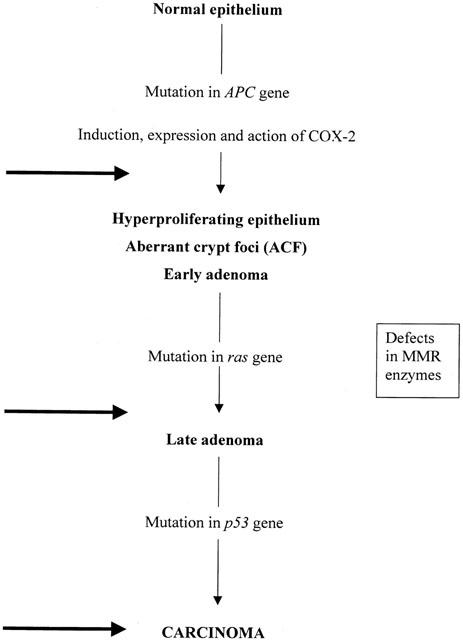Figure 2.

Carcinogenesis in CRC and action of NSAIDs or selective COX-2 inhibitors (C2Is). The progression from normal epithelium to carcinoma has several identifiable stages, some associated with particular genetic mutations with the loss of the related protein and its function. Loss of the APC gene product is accepted as the initiator of the whole process. Expression and consequent action of COX-2 in the APC-deficient cells is required for carcinogenesis to progress. The nature of the link between loss of APC and induction of COX-2 is not clear, e.g., is it direct or coincidental. Further progression from the early adenoma onwards is associated with mutations of RAS and of p53 but these mutations alone, i.e., in the absence of the APC mutation do not lead to carcinoma. At these stages, the defects in the DNA repair enzymes (MMR) appear to be expressed. The heavy arrows show the points at which inhibition of COX-2 will block progression. COX-2 activity is also needed for growth of transformed cells i.e. after carcinogenesis is complete.
